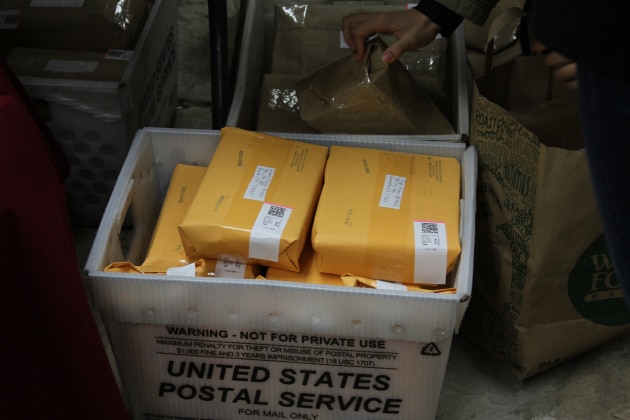MY FRIEND and New York attorney Beena Ahmad – who worked for nearly a year with the Wits Justice Project – had a quirky habit. In her neighborhood in Brooklyn she picked up books that people left out on the street with great enthusiasm (an aside: you can furnish your entire house with the stuff people discard; from baby shoes, to antique cupboards, to electronics). Sometimes I would share her joy, like when she picked up a battered copy of ‘Long Walk to Freedom’, placed on a garden wall. At other times though, ‘Form Your Own Limited Liability Company’, for example, didn’t seem quite as riveting a read.
Senior WJP journalist Ruth Hopkins is spending two and a half months in the United States with the Equal Justice Initiative in Montgomery and the Marshall Project in New York, investigating the similarities between issues facing both the American and South African criminal justice systems. Ruth will be detailing her journey through weekly blog posts published every Friday.
MY FRIEND and New York attorney Beena Ahmad – who worked for nearly a year with the Wits Justice Project – had a quirky habit. In her neighborhood in Brooklyn she picked up books that people left out on the street with great enthusiasm (an aside: you can furnish your entire house with the stuff people discard; from baby shoes, to antique cupboards, to electronics). Sometimes I would share her joy, like when she picked up a battered copy of ‘Long Walk to Freedom’, placed on a garden wall. At other times though, ‘Form Your Own Limited Liability Company’, for example, didn’t seem quite as riveting a read.
But when I entered the basement of the bookstore Free Bird, where Books Through Bars New York hosts one of their weekly book packing volunteer groups, I got it. About 10 people were seated around a table or browsed the shelves crammed pell-mell with books.
Incarcerated people write to the organisation, requesting books they want to read. The volunteers read their letters and go through the book collection to see if they can find any matches and mail the books to the inmates.
Annie Soga, a 26-year-old volunteer who describes herself as a ‘library school dropout’ and her boyfriend Tim Nicholas run fanzines and are regular volunteers for Books Through Bars. “Dictionaries are most popular,” she says. According to this website “more than 60 percent of all prison inmates are functionally illiterate.” If prisoners learn to read and write their chances of ending up back in prison drastically drop, and it also allows them to understand their rights.
![Annie Soga [left] and other Books Through Bars volunteers sorting through mail.](https://ruth-hopkins.com/wp-content/uploads/2019/11/ruth-blog-2.jpg)
The power of books shines through in the thank you notes uploaded to the Books Through Bars website. One person writes that he is grateful for the books on photography that the project sent him, “the books (…) have provided great inspiration for artwork that I have completed for other inmates and staff at this facility.” Another man writes: “I would like to thank you for the books you sent me last month. I’m going to be executed May 30th<th### sup=””> but I’d like you to know that those books will give me much pleasure in the days remaining to me.”</th###>
<th### sup=””>Given the grim reality of life behind bars, it comes as no surprise that sci-fi and fantasy are popular requests, as are stories and pictures about family life; a surrogate for the loved ones that are missed.</th###>
<th### sup=””>Some books are not allowed though. Many prisons ban hardback copies and some ban books with maps and DIY books. In Alabama, The Equal Justice Initiative sued the Alabama Department of Corrections over its ban of the book‘Slavery by Another Name’, which documents the abhorrent practice of ‘convict leasing: “African Americans in Alabama and throughout the South were re-enslaved in the years following the Civil War, due in part to laws specifically written to facilitate the arbitrary arrest of African Americans. Unable to pay the resulting fines, in addition to the costs for their own arrests, they were sold as forced labor to mines, railroads, farms, and quarries.” Bryan Stevenson, EJI’s director had sent the book to a man working in the prison library of an Alabama prison.

The Department based its decision on a regulation, which states that any piece of mail or other material “may be determined to be a threat to the security of the institution.” The case was settled in 2013, when the book was allowed in the prison.
When the evening draws to a close in the Free Bird basement, there are at least eight bags full of packaged books that need to be mailed. The brown packages clog up the first postbox and we haul the bags to the second, around the corner. I imagine someone in a cell unpacking and reading ‘Long Walk to Freedom’ and I know this was an evening well spent.
Featured Photo: Beena Ahmad [left], Books Thru Bars volunteer and former Wits Justice Project staff member.
